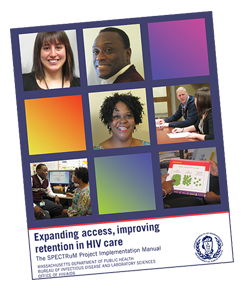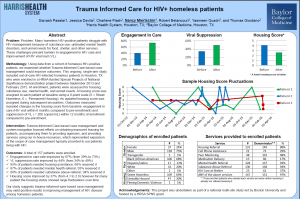
Webinar: Coordinating Care for Children in Families with Complex Social and Health Needs-Research and Practice Date: Wednesday, November 9, 2016 Time: 10 to 11 a.m. PT / 1 to 2 p.m. ET
Webinar slides and recording available on the Lucile Packard Foundation for Children’s Health blog post: Webinar Describes Care Planning Process for Children with Special Health Care Needs
What does it take to create and implement an effective, family-centered plan of care for a child with special health care needs? Our expert speakers will discuss their approaches to the process of care planning in two very different settings-Children’s Hospital of Philadelphia and a small private practice in Vermont.
Our moderator is the author of Achieving a Shared Plan of Care with Children and Youth with Special Health Care Needs, a report that describes the key content of a comprehensive and integrated care plan, and lists the steps necessary to create one. To make the most effective use of the webinar time, we suggest that registrants read the report in advance of the webinar.
Speakers
 Annique K. Hogan, MD, graduated from the University of Toledo College of Medicine and Life Sciences and completed her Residency in Pediatrics at the Children’s Hospital of Philadelphia (CHOP). Her work focuses on the care of children with medical complexity and improving transitions of care between the inpatient and outpatient settings. She is the Medical Director of the CHOP Compass Care program and the Integrated Care Service, both serving the needs of medically complex and fragile children. Taking a patient and family-centered approach, she will discuss the process of developing care plans in a manner that promotes shared decision-making, patient and family engagement, and optimal communication.
Annique K. Hogan, MD, graduated from the University of Toledo College of Medicine and Life Sciences and completed her Residency in Pediatrics at the Children’s Hospital of Philadelphia (CHOP). Her work focuses on the care of children with medical complexity and improving transitions of care between the inpatient and outpatient settings. She is the Medical Director of the CHOP Compass Care program and the Integrated Care Service, both serving the needs of medically complex and fragile children. Taking a patient and family-centered approach, she will discuss the process of developing care plans in a manner that promotes shared decision-making, patient and family engagement, and optimal communication.
 Jill S. Rinehart, MD, FAAP, is a partner in a small private pediatric practice in Burlington, Vermont, and Clinical Associate Professor of Pediatrics at the University of Vermont College of Medicine. She has worked both locally and nationally to advance the practice of care coordination and medical home transformation. She is lead faculty for Vermont’s Pediatric Care Coordination Learning Collaborative, helping practices throughout the state unify their efforts to help care for children with special health care needs. Dr. Rinehart will discuss techniques for achieving shared plans of care with families, including care mapping, care conferencing, and problem-solving conversation strategies.
Jill S. Rinehart, MD, FAAP, is a partner in a small private pediatric practice in Burlington, Vermont, and Clinical Associate Professor of Pediatrics at the University of Vermont College of Medicine. She has worked both locally and nationally to advance the practice of care coordination and medical home transformation. She is lead faculty for Vermont’s Pediatric Care Coordination Learning Collaborative, helping practices throughout the state unify their efforts to help care for children with special health care needs. Dr. Rinehart will discuss techniques for achieving shared plans of care with families, including care mapping, care conferencing, and problem-solving conversation strategies.
Moderator
 Jeanne W. McAllister, BSN, MS, MHA, is an Associate Research Professor of Pediatrics at Indiana University School of Medicine, Children’s Health Services Research Division. As co-founder and former director of New Hampshire’s Center for Medical Home Improvement, she brings more than 30 years of health care experience to the arena of health care improvement, education, and research.
Jeanne W. McAllister, BSN, MS, MHA, is an Associate Research Professor of Pediatrics at Indiana University School of Medicine, Children’s Health Services Research Division. As co-founder and former director of New Hampshire’s Center for Medical Home Improvement, she brings more than 30 years of health care experience to the arena of health care improvement, education, and research.
This webinar is the third in our series on care coordination, and builds on the work that began with the Lucile Packard Foundation for Children’s Health’s 2015 national symposium, “Designing Systems That Work for Children with Complex Health Care Needs.” This webinar will build on the previous webinars in this series, Take Action on Care Coordination and Research and Practice Perspectives-Coordinating Care for Children with Social Complexity.
Webinar slides and recording available on the Lucile Packard Foundation for Children’s Health blog post: Webinar Describes Care Planning Process for Children with Special Health Care Needs
The Catalyst Center, the National Center for Health Insurance and Financing for Children and Youth with Special Health Care Needs, is a project of the Center for Advancing Health Policy and Practice at Boston University School of Public Health.


 Annique K. Hogan, MD, graduated from the University of Toledo College of Medicine and Life Sciences and completed her Residency in Pediatrics at the Children’s Hospital of Philadelphia (CHOP). Her work focuses on the care of children with medical complexity and improving transitions of care between the inpatient and outpatient settings. She is the Medical Director of the CHOP Compass Care program and the Integrated Care Service, both serving the needs of medically complex and fragile children. Taking a patient and family-centered approach, she will discuss the process of developing care plans in a manner that promotes shared decision-making, patient and family engagement, and optimal communication.
Annique K. Hogan, MD, graduated from the University of Toledo College of Medicine and Life Sciences and completed her Residency in Pediatrics at the Children’s Hospital of Philadelphia (CHOP). Her work focuses on the care of children with medical complexity and improving transitions of care between the inpatient and outpatient settings. She is the Medical Director of the CHOP Compass Care program and the Integrated Care Service, both serving the needs of medically complex and fragile children. Taking a patient and family-centered approach, she will discuss the process of developing care plans in a manner that promotes shared decision-making, patient and family engagement, and optimal communication. Jill S. Rinehart, MD, FAAP, is a partner in a small private pediatric practice in Burlington, Vermont, and Clinical Associate Professor of Pediatrics at the University of Vermont College of Medicine. She has worked both locally and nationally to advance the practice of care coordination and medical home transformation. She is lead faculty for Vermont’s Pediatric Care Coordination Learning Collaborative, helping practices throughout the state unify their efforts to help care for children with special health care needs. Dr. Rinehart will discuss techniques for achieving shared plans of care with families, including care mapping, care conferencing, and problem-solving conversation strategies.
Jill S. Rinehart, MD, FAAP, is a partner in a small private pediatric practice in Burlington, Vermont, and Clinical Associate Professor of Pediatrics at the University of Vermont College of Medicine. She has worked both locally and nationally to advance the practice of care coordination and medical home transformation. She is lead faculty for Vermont’s Pediatric Care Coordination Learning Collaborative, helping practices throughout the state unify their efforts to help care for children with special health care needs. Dr. Rinehart will discuss techniques for achieving shared plans of care with families, including care mapping, care conferencing, and problem-solving conversation strategies. Jeanne W. McAllister, BSN, MS, MHA, is an Associate Research Professor of Pediatrics at Indiana University School of Medicine, Children’s Health Services Research Division. As co-founder and former director of New Hampshire’s Center for Medical Home Improvement, she brings more than 30 years of health care experience to the arena of health care improvement, education, and research.
Jeanne W. McAllister, BSN, MS, MHA, is an Associate Research Professor of Pediatrics at Indiana University School of Medicine, Children’s Health Services Research Division. As co-founder and former director of New Hampshire’s Center for Medical Home Improvement, she brings more than 30 years of health care experience to the arena of health care improvement, education, and research.

